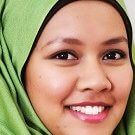Eid al-Adha, celebrated this past Thursday, marks one of the two most important religious holidays for Muslims around the world.
Different from Eid al-Fitr, which celebrates the end of a month-long fast, Eid al-Adha marks the end of the 10-day pilgrimage known as the hajj.
Able-bodied Muslims who can afford to do so are required to perform the Islamic holy pilgrimage to Mecca at least once in their lifetime.
Earlier in the day, Muslims around the world were shocked by news of a stampede in Mina, Saudi Arabia which killed over 700 people as pilgrims were on their way to perform a Hajj ritual. More than 800 were injured. For Muslims in Canada, celebrating Eid this year is especially poignant given the current refugee crisis in Europe.
“This Eid, the [sermon] was mostly about the refugees throughout the world and how we can help, how we can contribute,” says Aamir Jamal, a professor in social work at St. Thomas University in Fredericton, New Brunswick.
Jamal is a member of the Fredericton Islamic Association (FIA), a local organization that has teamed up with churches and other community groups in Fredericton to help bring refugees to Canada and support them when they arrive.
“This Eid reminds us to think beyond ourselves and we develop empathy for the weak among us.”
During this year’s Eid celebration, Jamal says Fredericton Muslims started a new initiative to support five new refugee families by contributing their portions of qurbani – the ritual sacrifice of lamb, goat or cow – to the families.
The community is also continuing to assist the families with registering their children in school, finding a place to live and settling down in Canada.
Jamal says helping refugee families to start their lives in Canada fits in with the purpose of Eid.
“The theme and the philosophy behind this Eid is qurbani and sacrifice and thinking about others and giving things up for others,” he explains. “This Eid reminds us to think beyond ourselves and we develop empathy for the weak among us.”
Importance of fostering community
Former resident of Fredericton, Nora Shafe Fathalipour says there are more ways to celebrate Eid in Toronto because of the much larger Muslim population in the Greater Toronto Area (GTA).(Fredericton is home to between 200 and 300 Muslim families.)
“In Toronto, you have the option to go to a lot of different places,” Fathalipour says. “Going to Eid prayer also means a chance to socialize,” she adds.
“If we have enmity among ourselves, we’re not going to be able to solve the local or wider issues or have any sympathy.”
Currently taking graduate courses at the University of Toronto, Fathalipour attended the morning Eid prayers organized at the U of T Muslim Chaplaincy, where the sermon also touched on the importance of fostering community and supporting one another.
“It was a reminder of our social responsibility as a community towards each other,” says Fathalipour.
“The reason why people are able to kill each other or not feel remorse when other people are hurt is because we start from this position of enmity,” she says. “If we have enmity among ourselves, we’re not going to be able to solve the local or wider issues or have any sympathy.”
Fathalipour says this year’s Eid sermon reflected the need for compassion between individual community members that can lead to solving wider issues like the lack of support for war-weary refugees making their way across Europe.
Better late than never
For Jamal Osman, one of the vice presidents of the Muslim Community of Edmonton (MCE) mosque, support for the current wave of refugees is part of his community’s ongoing efforts. He says there are many Muslims in Edmonton with close ties to victims of the Syrian conflict.
Osman says the community has been working to support victims of the Syrian war and other refugees, and efforts include supporting newcomer refugee families as well as doctors in the community who volunteer with Doctors Without Borders.
“We’ve been in the trenches from the beginning years and years ago,” Osman says.
“We haven’t loss sight of our responsibility to help our brothers and sisters.”
So even though celebrations at the MCE mosque aren’t particularly focused on the refugee crisis, Osman explains, “We haven’t loss sight of our responsibility to help our brothers and sisters.”
In fact, Edmonton’s Islamic Family and Social Services (IFSSA) has taken the lead to represent the collective efforts of the Edmonton Muslim community in alleviating the refugee crisis.
“We are behind the scenes laying the groundwork for IFSSA to be in the position to be able to support Syrian refugees once they are able and ready to come to Canada,” Osman says.
He adds that he feels the current heightened attention on the needs of refugees is overdue given the crisis has been brewing for years, but it’s better late than never.
“We’ll take what we can get,” Osman says, “because, at the end of the day, it is intended to help these folks that are in dire need.”





